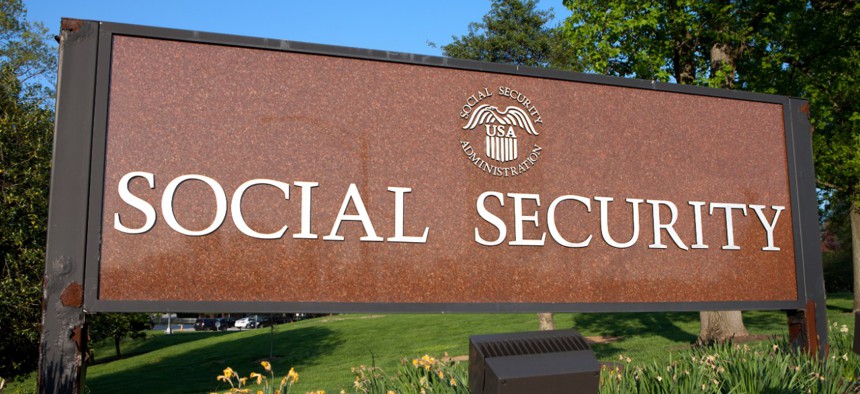
Mark Van Scyoc / Shutterstock.com
Arbitrator Finds Social Security Violated Federal Labor Law in Negotiations with Administrative Law Judges
An independent arbitrator rules that SSA management engaged in bad faith bargaining by repeatedly withholding information from a union representing the judges as the parties were preparing to negotiate a new contract.
An independent arbitrator last week ruled that the Social Security Administration violated federal labor law by withholding information during its contract negotiations with a union representing administrative law judges who preside over Social Security disability cases.
The ruling is a result of a grievance filed by the Association of Administrative Law Judges, which accused the agency of repeatedly denying the union’s requests for information while the parties prepared to negotiate a new contract.
In its grievance, the union highlighted a number of instances when routine requests for data related to provisions in its collective bargaining agreement were delayed or denied. These requests included detailed disposition data for the agency’s administrative law judge corps, the estimated cost of training a new administrative law judge, the criteria by which the agency places ALJs under “close supervision” and data supporting the need for the agency’s demand for a seven-year contract term.
In many of these cases, arbitrator Malcolm Pritzker found the agency’s denials did not meet the standard needed to justify withholding information. In one instance, he noted that although the agency claimed the union’s request regarding the proposed contract duration was “not related to collective bargaining,” officials eventually used the requested data as part of the agency's justification for the contract length before the Federal Service Impasses Panel.
“The union explained what it wanted, why it wanted it, and what they intended to do with the information which was to bargain about duration, which is a subject within the scope of bargaining,” Pritzker wrote. “I also note that the agency subsequently gave statistics about the cost of negotiations to the impasse panel to justify their position on the question of duration. Had the agency given the same information it subsequently gave to the impasse panel to the union in response to this [request for information], there would not be a violation.”
The Association of Administrative Law Judges had requested that, if victorious, the agency be required to provide the information previously withheld and that the parties return to the bargaining table to restart negotiations. The Federal Service Impasses Panel issued a largely pro-management decision last month, leading to a federal lawsuit against the body over how its members are appointed.
Pritzker wrote that although he cannot compel the parties to restart negotiations, the agency must now provide the information requested by the union within 30 days in the instances where he found violations.
“I do not have the right to interfere with the procedures of the impasses panel or to intervene in the collective bargaining process, and I will not order the reopening of the negotiations between the parties,” he wrote.
In a statement, Association of Administrative Law Judges President Melissa McIntosh applauded the decision.
“[Commissioner Andrew] Saul and [Deputy Commissioner David] Black have authorized aggressive union busting strategies to eliminate our union of disability judges,” she said. “SSA negotiated in bad faith and refused to work with us during the pandemic. While Mr. Saul and Mr. Black have chosen to make union busting a part of their professional legacies, the American public should not be their collateral damage. Their focus should be on serving the American public, not eliminating our union.”
In a statement last month, the agency said it "abided by all rules and all laws" in its negotiations with AALJ. On Friday, a spokesperson disputed the arbitrator's findings and said the agency is examining legal next steps.
"The quote referenced is an arbitrator’s opinion and is not necessarily final or binding as it may be subject to appeal to the Federal Labor Relations Authority," the spokesperson said. "While AALJ has repeatedly sought to resolve their concerns before the courts and other third parties, in recent decisions the FLRA has found that SSA appropriately engaged with AALJ during the course of bargaining a new national agreement."
Although the agency has already implemented a portion of the contract—over the union’s objections—it has agreed to delay implementation of the new contract at least until the end of May, as the union’s court case proceeds, according to FCW.
This post has been updated to include comment from the Social Security Administration.
NEXT STORY: Gen Z Doesn’t Want to Work for the Government







